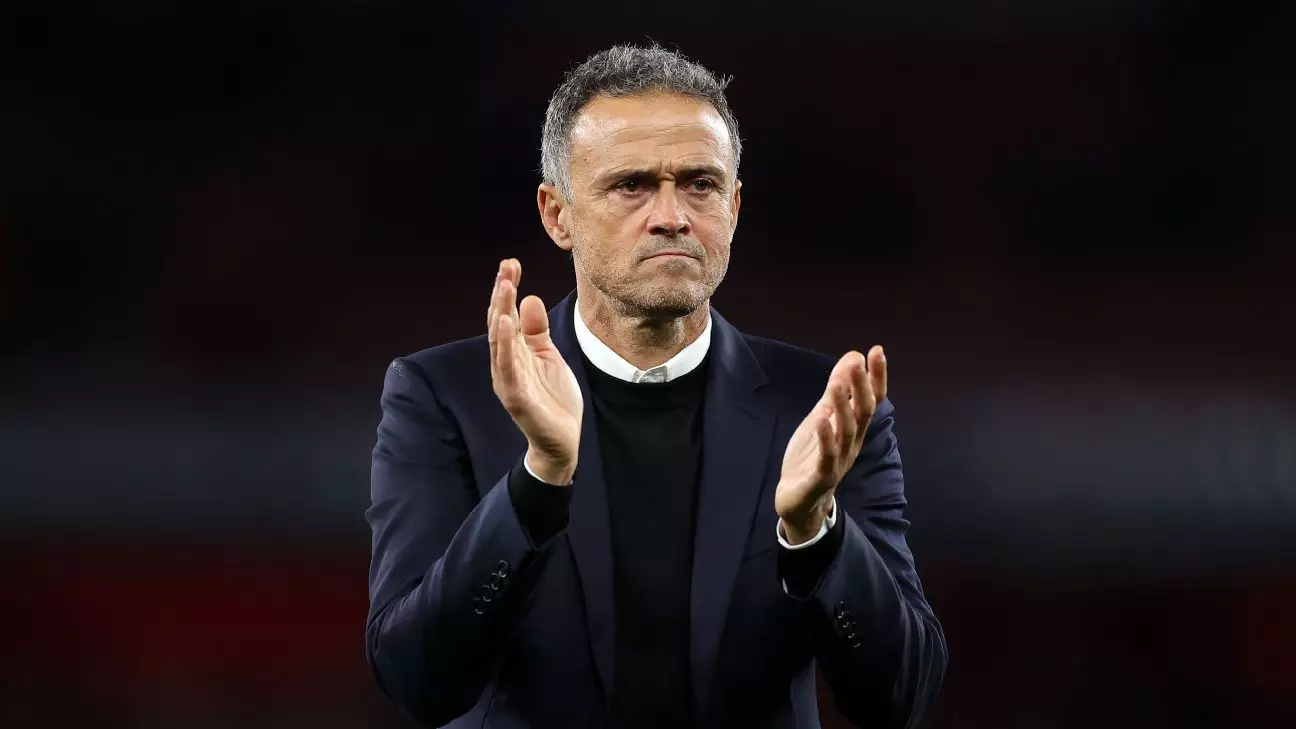The landscape of modern football often highlights the interplay between discipline and performance, particularly when high-caliber athletes are involved. Paris Saint-Germain (PSG), a club that consistently finds itself at the forefront of European football, recently provided a case study in this dynamic through the actions of its manager, Luis Enrique. Recently, Enrique made the decision to drop Ousmane Dembélé from the squad during a Champions League match against Arsenal due to what was termed as disciplinary issues. This bold choice raises numerous questions regarding team management, player responsibility, and the broader implications for a club aiming for both domestic and European supremacy.
Enrique’s decision to exclude Dembélé, who had garnered significant attention for his impressive form at the onset of the season, showcases a commitment to maintaining team discipline over individual talent. With Dembélé netting four goals and providing four assists early in the season, his contributions had positioned him as a focal point in PSG’s attack following Kylian Mbappé’s exit from the club. Dropping a player of Dembélé’s caliber, particularly after a series of promising performances, suggests that Enrique holds a steadfast belief in the necessity of accountability.
While the precise circumstances surrounding the disciplinary issue remain undisclosed, Enrique’s clarification during a press conference underscores a broader philosophy regarding team dynamics. He stated, “When a player doesn’t meet their obligations, this is the sort of thing that can happen.” The implications of such a decision go beyond mere personnel choices—they resonate throughout the locker room, reinforcing the notion that every player is accountable, regardless of their skill level.
Enrique’s rationale presents a compelling argument: one uncommitted player could disrupt overall team synergy. His approach seeks to build a culture within PSG that prioritizes collective success over individual prowess. This ideal is essential for clubs competing at the highest levels, where cohesion can often be the difference between triumph and failure.
The aftermath of the decision manifested itself in PSG’s 2-0 defeat to Arsenal, which marked their first loss of the season. Despite the setback, Enrique remained optimistic and analytical, stating, “We are imperfect; we will improve.” This balanced perspective reveals an understanding that the road to success is fraught with difficulties, and adaptability is key in such unpredictable environments.
The Ligue 1 standings paint a picture of resilience, with PSG leading the league table, albeit by a slim margin over AS Monaco. Enrique’s insistence on learning from losses is pivotal; it illustrates a commitment to continuous growth, an essential quality for any leader in competitive sports. His outlook fosters a mindset that allows players to learn from adversity, ensuring they are better equipped for future challenges.
In the subsequent match against Nice, a team that has shown promise under its new coach Franck Haise, the stakes were raised. Nice, presently positioned as a defensive stalwart in the league—having conceded only six goals—presents a unique challenge. Enrique’s recognition of the strength in Nice’s defense and their tactical discipline illustrates his comprehensive understanding of the league’s competitive landscape.
As PSG prepared to face Nice, Enrique highlighted that his squad must adapt their strategies to counter the tight defense and enhanced pressing game often employed by the opposition. “They press high up the pitch and are strong on the ball,” he noted, suggesting careful preparations would be necessary to secure a positive result. This level of foresight not only prepares the players psychologically but also creates tactical flexibility, empowering the team to adjust based on real-time developments throughout the match.
Luis Enrique’s management philosophy at PSG embodies the tension between discipline and performance, a constant balancing act in the realm of elite football. Despite the heartache of a loss against Arsenal, his principles remain clear: accountability, commitment, and continuous improvement are non-negotiable for success.
With challenges on the horizon, particularly in facing well-organized opponents like Nice, Enrique’s focus on instilling resilience, adaptability, and a strong sense of discipline will be critical as PSG navigates the intricate world of both Ligue 1 and the Champions League. In football, as in life, it is often through trials that the greatest opportunities for growth emerge—creating both a roadmap for success and an intriguing narrative for this season’s campaign.

Leave a Reply